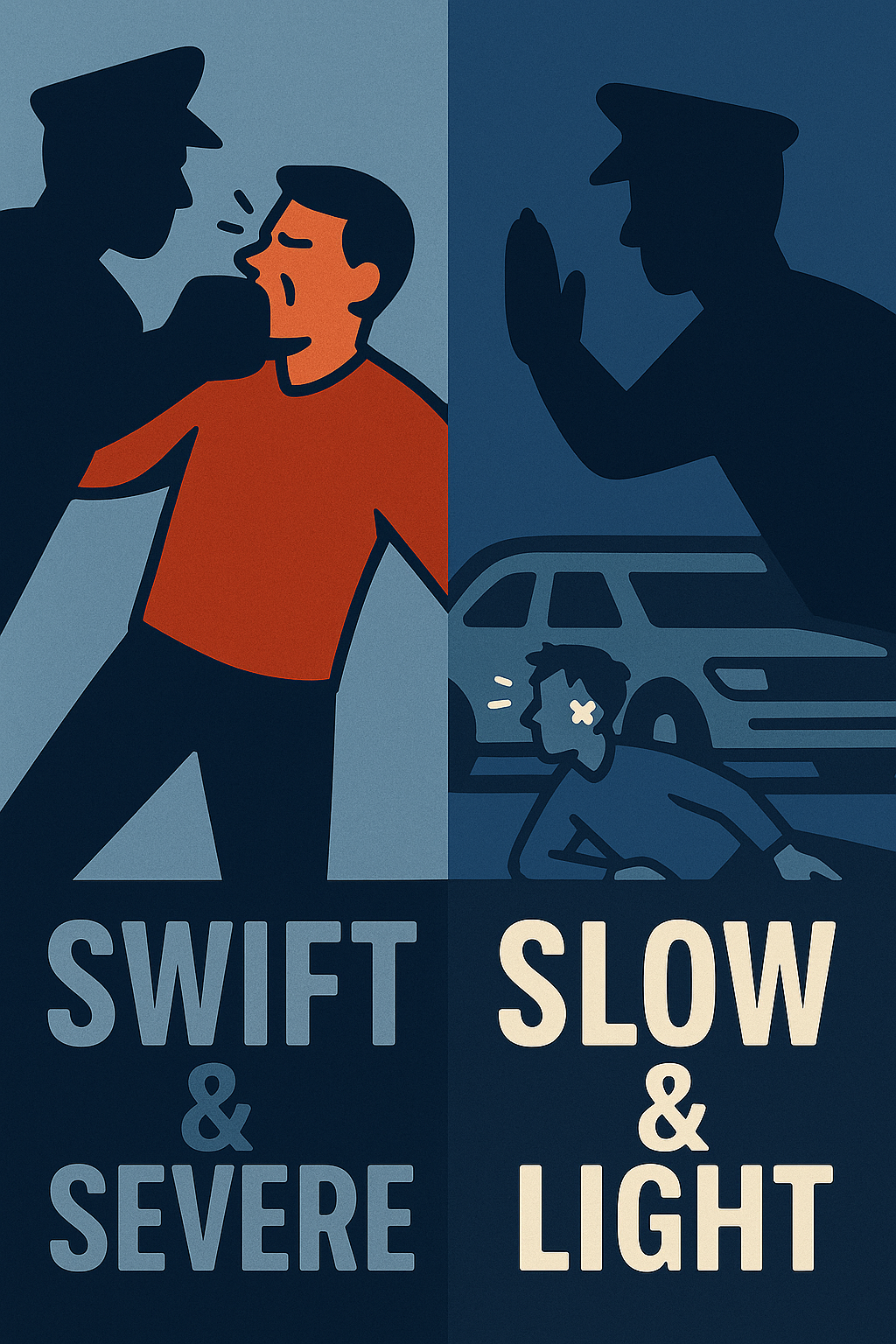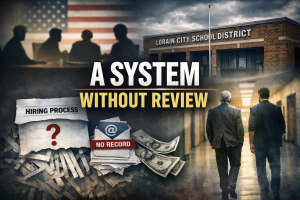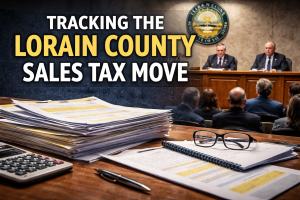Justice in Two Systems: When Accountability Breaks Down

Jul 03, 2025
By Aaron C. Knapp | Lorain Politics Unplugged
1. Mayfield Heights: Woman Hits Officer, Walks Free
On June 22, 22-year-old Miara Adams struck veteran Corporal Jay Cudo with her car while police were dispersing a crowd trespassing at an apartment complex pool party. Cudo suffered spinal injuries, missing five days of work and enduring ongoing pain. Yet, despite felony assault charges, Adams was released without bond by a municipal judge. Why does causing serious injury to an officer sometimes get treated more leniently than civilians injured by officers?
📄 Read WOIO’s full report
Brooklyn: Sgt. Stein Allegedly Assaults Driver After Hit-and-Run
Brooklyn Police Sergeant Paul Stein is under investigation for hitting a man’s car on I-90, fleeing, then assaulting the driver after the accident. Despite bodycam footage and witnesses supporting the victim’s account, no charges have yet been filed, and official statements remain silent. When officers are accused, the wheels of justice seem to turn slowly, if at all.
📄 See Cleveland 19 News coverage
Elyria: Police Employee Hits Vulnerable Cyclist, Minimal Consequences
Frances Ross, a 30-year employee of Elyria Police Department, struck Justin Ballew—homeless, battling cancer, and relying on his bike for transportation—while leaving the police station parking lot. Ross didn’t stop and was fined just $50 months later for failing to yield. Ballew was never contacted or offered compensation, and his damaged bike was disposed of by police. This isn’t just a clerical error; it’s a failure to value vulnerable lives.
📄 Read the WOIO story
Elyria: Teen Helping Crash Victims Struck by Police Cruiser
A 15-year-old boy assisting crash victims was struck by a police car driving through an active scene. Although the officer violated departmental vehicle operation rules and received written reprimands and remedial training, no citations were issued. The officer returned to duty swiftly, while the teen and community were left wondering if “justice” applied equally.
📄 News 5 report here
Lorain: Sergeant Leaves Scene of Off-Duty Crash
Lorain Police Sergeant Eric Rivera was placed on administrative leave after crashing a department vehicle off duty and leaving the scene, damaging two vehicles and a shed. No timeline has been given for the investigation, no public statements made, and it’s unclear if charges will be filed. This latest incident adds to growing questions about accountability for off-duty police conduct.
Patterns We Cannot Ignore
These cases are linked by more than just local geography. They reveal a system that protects its own while leaving civilians—sometimes seriously injured or vulnerable—without meaningful justice or recourse. Evidence, video, and witness accounts are present in most incidents, yet the consequences are often minimal, delayed, or opaque.
Meanwhile, civilians accused of harming officers face swift arrests, felony charges, bond hearings, and public scrutiny. But when officers or their associates harm civilians, investigations drag on, discipline is light or internal, and the public is left with little transparency.
Why This Matters:
- It erodes public trust in law enforcement and the justice system.
- It punishes good Samaritans who try to help, as with the Elyria teen.
- It deepens systemic inequality, where the shield of a badge creates unequal treatment under the law.
- It harms community safety, because people fear reporting or engaging with police who seem above accountability.
We Need To Do Better
- Independent investigations must be the norm—not the exception—when officers or their affiliates cause harm.
- Victims deserve transparency, communication, and restitution.
- Internal reviews should be publicly accessible (with reasonable privacy redactions).
- Consequences must match harm, including criminal charges and civic accountability, not just write-ups or training.
- Community voices should be heard in reforming oversight structures.
Final Thought: A Call to End Hypocrisy
The double standard in accountability is glaring and dangerous. When a civilian hurts an officer, the system acts swiftly and sternly. But when an officer—or someone connected to the police—harms a civilian, the response is too often quiet, delayed, or minimal.
This hypocrisy erodes the foundation of justice itself.
If law enforcement is to be trusted and respected, it must be held to the same standards it demands of others. Equal accountability is not a favor—it’s a necessity. It’s time for our communities, leaders, and law enforcement agencies to demand transparency, fairness, and real consequences.
We owe it to the victims, the public, and the ideals of justice to do better.
This is Aaron C. Knapp, reporting for Lorain Politics Unplugged. I will continue to follow these stories closely and bring you updates as they unfold. Subscribe for ongoing coverage and join me in demanding accountability.






